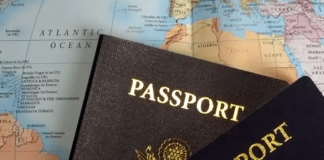The Executive Board of the International Monetary Fund (IMF) approved two financial arrangements today for the Democratic Republic of the Congo (DRC), totaling approximately $2.77 billion to support the country’s economic reforms and climate resilience efforts.
The IMF approved a 38-month arrangement under the Extended Credit Facility (ECF) for the DRC, worth SDR1,332.5 million (about $1.73 billion, or 125% of quota). The package also includes a 38-month arrangement under the Resilience and Sustainability Facility (RSF), amounting to SDR799.5 million (around $1.04 billion, or 75% of quota).
The move comes as the DRC faces both significant economic challenges and growth opportunities. The country has shown resilience with strong economic performance in 2024, projecting a 6% growth in real GDP. Inflation, which peaked at 23.8% at the end of 2023, had decreased to 12.8% by November and has continued to decline in recent weeks. Despite this progress, fiscal deficits have persisted, driven by unexpected wage increases and heightened security spending.
The new IMF-backed program seeks to build on the achievements of the previous 2021-2024 ECF arrangement, which was completed in July 2024. The focus will be on preserving macroeconomic stability, improving the business climate, enhancing governance and transparency, and fostering inclusive economic growth. Key initiatives under the plan include bolstering revenue mobilization efforts, implementing stronger public financial management reforms, and improving accountability in public resource allocation.
Additionally, the RSF arrangement is designed to assist the DRC in its transition to a low-carbon economy while strengthening its resilience to climate-related shocks. The country aims to play a key role as a “solution country” in global climate action, with particular focus on protecting its vast rainforests and mitigating the effects of climate disasters.
In a statement following the Executive Board’s discussion, IMF Deputy Managing Director and Chair, Mr. Okamura, highlighted the DRC’s strong economic performance despite ongoing challenges, including armed conflicts in the eastern region and the recent Mpox public health crisis.
“The economy of the DRC has remained resilient, with robust growth and declining inflation, despite the significant challenges it faces,” Okamura said. “However, deepening reforms are still needed to address macroeconomic policy, structural issues, and climate-related risks.”
The IMF also commended the DRC’s efforts to strengthen its foreign exchange reserves and praised the country’s central bank for maintaining tight monetary policies, which helped curb inflation.
The IMF’s support is expected to help the DRC achieve fiscal stability, boost growth, and advance the country’s climate resilience agenda. Under the ECF arrangement, the authorities plan to focus on improving fiscal discipline, enhancing public financial management, and creating fiscal space for investment in infrastructure and social programs.
The RSF arrangement will provide the necessary financial backing to advance the DRC’s climate adaptation and mitigation goals, aiming to integrate climate considerations into public investments and safeguard the country’s rainforests, which are crucial to global carbon sequestration efforts.



